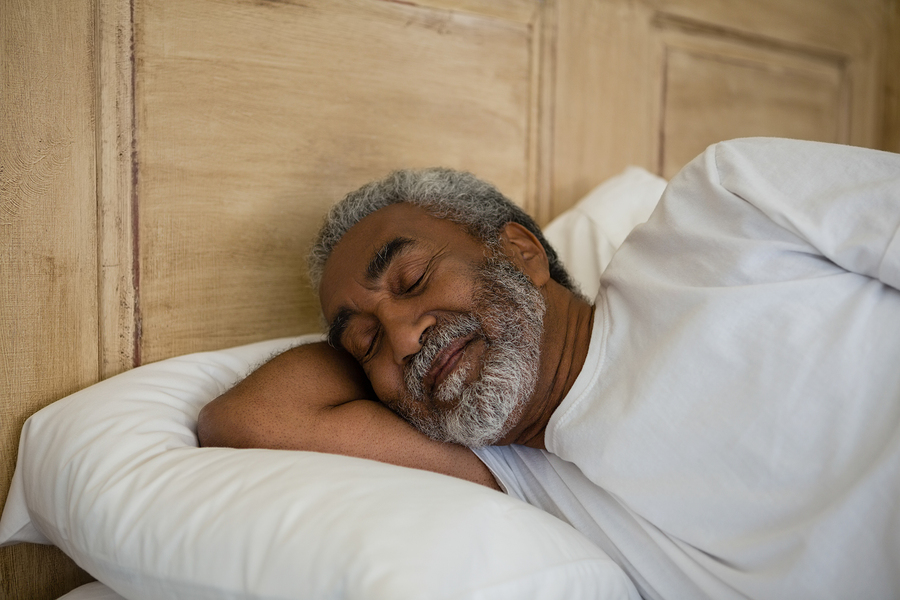It’s a common misconception that people need less sleep as they age. Sleep is an important part of your elderly loved one’s well-being and without regular, restorative sleep, his health can suffer.
Why Good Sleep is Important for Seniors
Sleeping is an important time for the body to rest, do some maintenance, and restore and replenish needed levels in the body. Without a healthy sleep life, your loved one increases his risk for multiple health issues.
- Quality Sleep Reduces the Risk of Certain Diseases. Missing out on restorative sleep increases your loved one’s risk of developing high blood pressure, heart disease, diabetes, and obesity.
- Quality Sleep Improves Cognitive Functions. A good night’s sleep helps the brain to function at its best. It improves its ability to remember important facts, problem-solve, and make decisions.
- Quality Sleep Boosts Mental Health. A lack of sleep is linked to mental health issues like depression and anxiety. A good night’s sleep is important to maintain better mental health.
- Quality Sleep Allows the Brain to Refresh Itself. At night, while a person sleeps, is when the brain can release harmful toxins and possibly prevent the onset of diseases like dementia or Alzheimer’s disease.
Implementing Changes for Better Sleep for Seniors
So, how does your loved one go about getting a better night’s sleep? While he might be able to make the changes needed, he might also find that if he has other health issues, having someone stay in his home during both the day and night, will help him take the needed steps for better sleep. A 24-hour home care team will have someone stay with your loved one both when he’s awake and sleeping. A 24-hour home care provider can help with those middle-of-the-night changes or those bedtime routine changes that your loved one is trying to implement. Plus, having a 24-hour home care provider there at night, might help your loved one rest better knowing someone is there if he needs help with anything.
Five Tips for Better Sleep
These tips are not just when your loved one goes to bed. Better sleep starts the minute he wakes up each morning.
- Develop a regular sleeping schedule. Your loved one should strive to go to bed at the same time each night and wake up at the same time each morning. This will prevent getting too much sleep one night so that sleeping is difficult the next night and throws off the body’s natural rhythms.
- Exercise during the day. Being active during the day can help your loved one sleep better at night. If he needs assistance with being active, a 24-hour home care provider who is there during the day can help him with transportation or accompany him while he exercises.
- Avoid sleep-interrupting substances. Caffeine-based drinks, a big heavy meal before bedtime, too much alcohol, or smoking, can all interrupt the body’s sleep patterns and create a poorly slept night.
- Create a bedtime routine. Having a routine alerts the brain that bedtime is coming up next. It can be listening to relaxing music, reading a book, or taking a warm bath. Find what works and be consistent about it.
- Remove all bedroom distractions. Phones, laptops, TVs, etc. should all be turned off completely before your loved one gets into his bed.
With the consistency of better habits, your loved one will soon be sleeping better.
If you or an aging loved one is considering 24-hour home care in Cave Creek, AZ, please call the caring staff at Golden Heart Senior Care of Scottsdale at (480) 284-7360. We are here to help!
